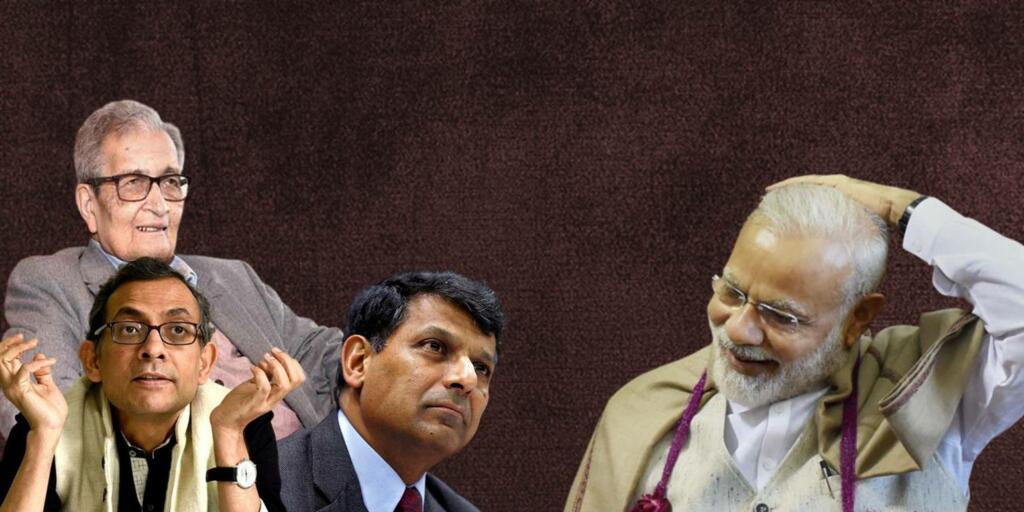People who spend their day and night only reading about various kinds of stuff often tend to cut off from reality. You will normally find them sitting at a coffee table and discussing things that a normal individual would fail to comprehend. This is exactly the crux of the problem with economists giving their predictions about the Indian economy. They fail to grasp on-ground reality.
Raghuram Rajan appreciates the Modi government
Recently, Raghuram Rajan, former RBI Governor and renowned professor praised Modi government’s economic policies. On being queried whether India could face a crisis like those of Pakistan and Sri Lanka, Rajan said that Indian government does not rely much on borrowing and that is why the debt of India is not that big which could instigate such a crisis. Rajan also appreciated the central bank for maintaining a high amount of Forex Reserve and its interest rate regime.
Rajan’s comment came as surprising for almost everyone well-versed with his views on the Indian economy under the Modi government. In 2019, he had termed the Narendra Modi government as autocratic and too centralized. In Economic parlance, autocratic system translates to low productivity and hence low growth for the country. A few months later, when CAA-NRC protests were at their peak, he pinned the blame for slow economic growth on the political and social policies of Modi government.
Even in the speech in which he appreciated India’s economy, Rajan hinted that he agrees with leftists’ propaganda that minorities in India are turning into 2nd class citizens under Modi government.
Economists have been critical of Modi government
But, Rajan is not the only one whose predictions have gone wrong. The list includes well-known economists like Nobel laureates Amartya Sen, Abhijit Banerjee, and New York Taxi driver fame Kaushik Basu as well. All these heroes of the left have accused Modi government of being anti-poor, and anti-minority among others.
When the Modi government was providing free food to more than 80 crore Indians, Kaushik Basu came up with the analysis that the Government underestimates the suffering of the poor. When IMF report appreciating the Modi government for keeping poverty in check during Covid came out, Basu shifted his focus towards polarisation in society and stated that this particular phenomenon will impact India’s growth.
Amartya Sen toed similar lines. In January 2022, he told leftist portal The Wire that the Modi government has no regard for the poor. In July, he even went on to doomsday’s prediction that India could collapse. The Nobel laureate is also scared like Aamir Khan’s wife. Another Nobel laureate Abhijit Banerjee went on to say that Indians are in extreme pain. It is pertinent to note that he cited his personal visit to Mamata’s Bengal as an example and represented it as if it is the reality of the whole of India.
Economists have been provably wrong
The numbers as well as reality on the ground falsify their predictions about India. In spite of the alleged anti-Muslim image, Arab nations are rushing to invest in India. India’s FDI numbers are sound and business sentiments are strong. The poor which these economists claim to be sympathetic to are participating in economic growth.
Legacy of the poor human development era
But, they are not able to correct their faultlines. Here is how they falter. All of these economists are IVY-league educated. They took their economics lesson in the 70s, 80s, and in Amartya Sen’s case, much before that. During those days, the world was struck with an extreme poverty crisis and human development indices were constantly down.
For instance, in 1990, the average Homo sapien lived 64 years, while today, he lives around 72 years. India’s story has been by and large similar. To solve this crisis, economic textbooks were more centered around welfare economics.
Marxism failed
It is here that Marxism chipped in as well. While the original goal of welfare economics was to provide the poor with ample money so that they could become happy consumers of capitalism driven products, Marxism provided these economics professors with a potential to become the Messiahs of the poor.
They did get power. But, unfortunately for them, after poor people started to realize their individual development potential, they refused to participate in messianic revolutions. Now, the proletariats of Marxism themselves want to become bourgeois and governments of the day provides them with various schemes to fulfill this dream. What do you think the emphasis on self-employment aka entrepreneurship is all about? It is a symbol of human freedom which was not available to the majority of our ancestors.
But, old economists are addicted to the power and attention they get, henceforth they keep on repeating same points. Another possibility is that parroting words like poor and minorities among other liberal philosophies has become second nature for them. They may be promoting it out of instinct.
Support TFI:
Support us to strengthen the ‘Right’ ideology of cultural nationalism by purchasing the best quality garments from TFI-STORE.COM
